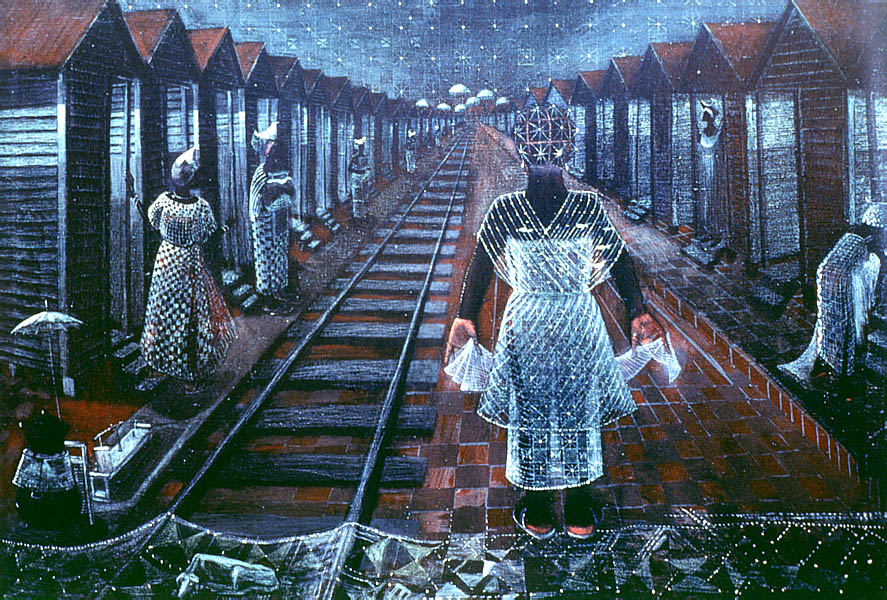

North By South 2001-2002
Our dilemma:
How do we fully demonstrate the uniqueness
of a particular group of people without separating them from American culture,
a culture of which they are co-founders?
We must first understand that African-American culture
is, as are all other cultures represented in the United States, an amalgamation,
a combination of characteristics and practices borrowed from others. This cultural
blending does not diminish the uniqueness of the resulting culture. A new culture
is created from pre-existing components in order that the particular culture
can survive.
We studied the survivals of African-Americans in
Charleston, South Carolina and the Mississippi Delta, those unique to each and
those present in both locales. Similarities found between the survivals in both
locations signal evidence of the Great Migration, and variations suggest the
influence of yet another culture.
Our research focused on four main cultural components:
Education, Food, Music, and Spatial Relationships. These components were selected/chosen
largely due to their prominence in African-American communities across the United
States. Due to/Because these components are identifiable both in Charleston,
South Carolina and the Mississippi Delta we were able to do comparative study
in addition to site specific research. In examining the components it is clear
that the environment, the social, political, and economic conditions that exist
in a particular place, greatly influence the survivals found/observed. This
site is a record of these survival findings.
These are the survivals we observed, not only of
a specific racial/ethnic group here in the United States, but a racial/ethnic
group who has, in the process of surviving, simultaneously altered and contributed
to American culture.
Bibliography....................Acknowledgements